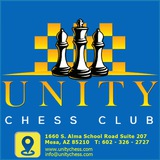21...Qc7!
Very noticeable: Yusupov is always looking to exchange queens in Dutch endings. Maybe the reasoning is that Black's weaknesses are more apparent with queens on, while his strengths (extra space) are more apparent with the queens off?
22.Qxc7 Bxc7 23.Nc6 a6 24.Nb4 a5 25.Nd3 g4=/+
The very typical theme for Yusupov: fixing the kingside with ...g4. He does this very often in the middlegame as well.
Very noticeable: Yusupov is always looking to exchange queens in Dutch endings. Maybe the reasoning is that Black's weaknesses are more apparent with queens on, while his strengths (extra space) are more apparent with the queens off?
22.Qxc7 Bxc7 23.Nc6 a6 24.Nb4 a5 25.Nd3 g4=/+
The very typical theme for Yusupov: fixing the kingside with ...g4. He does this very often in the middlegame as well.
Unity Chess Multiple Choice 567
public poll
A: Qh5 – 6
👍👍👍👍👍👍👍 67%
Nikhil, Ramesh, @MerissaWongso, Drew, @RichardPeng, Zhenrui
C: c6 – 2
👍👍 22%
Vincent, Atharva
B: Nc5 – 1
👍 11%
@SteveWongso
👥 9 people voted so far.
public poll
A: Qh5 – 6
👍👍👍👍👍👍👍 67%
Nikhil, Ramesh, @MerissaWongso, Drew, @RichardPeng, Zhenrui
C: c6 – 2
👍👍 22%
Vincent, Atharva
B: Nc5 – 1
👍 11%
@SteveWongso
👥 9 people voted so far.
Unity Chess Multiple Choice 568
public poll
B: a5 – 5
👍👍👍👍👍👍👍 63%
Nikhil, Ramesh, @SteveWongso, @RichardPeng, Zhenrui
A: Rb8 – 2
👍👍👍 25%
Vincent, Drew
C: Qc7 – 1
👍 13%
@MerissaWongso
👥 8 people voted so far.
public poll
B: a5 – 5
👍👍👍👍👍👍👍 63%
Nikhil, Ramesh, @SteveWongso, @RichardPeng, Zhenrui
A: Rb8 – 2
👍👍👍 25%
Vincent, Drew
C: Qc7 – 1
👍 13%
@MerissaWongso
👥 8 people voted so far.
✴️#Tartakower_chess_quotes_004
🔸 Savielly Tartakower
🔸 French-Polish journalist and Chess Grandmaster
@unitychess
🔸 Savielly Tartakower
🔸 French-Polish journalist and Chess Grandmaster
@unitychess
✴️#about_Tartakower
🔸 Savielly Tartakower
🔸 French-Polish journalist and Chess Grandmaster
🔰 Ksawery Tartakower was a leading Polish and French chess grandmaster. He was also a leading chess journalist and author of the 1920s and 1930s whose books remain popular even today. Tartakower is remembered for his sharp wit and aphorisms.
🔘 Full name: Ksawery Tartakower
🔘 Country: Poland France
🔘 Born: 22 February 1887
Rostov-on-Don, Russia
🔘 Died: 4 February 1956 (aged 68)
🔘 Paris, France
🔘 Title: Grandmaster (1950)
🔰 Savielly Grigoriewitsch Tartakower was born in Russia and moved to Vienna at age 17. He became a doctor of law in 1909, but he never became a practicing lawyer(1). During World War I, he served in the Austro-Hungarian army. In 1918, after the collapse of the Austro-Hungarian Empire at the end of World War I, he became a Polish citizen (although he did not speak Polish) and moved to Paris. He became a French citizen after World War II.
🔰 He won Vienna (1923), Hastings (1926/27), London (1927) (shared with Aron Nimzowitsch), Hastings (1927/28), Scarborough (1929) (shared with Harold Saunders), Liege (1930), and Hastings (1945/46). He also won the Polish championship twice (1935 and 1937) and the French championship at age 63, in 1950. In the 1930s Tartakower represented Poland in six chess olympiads, and France in 1950, winning three individual medals (gold in 1931 and bronze in 1933 and 1935), as well as five team medals (gold in 1930, two silver in 1931 and 1939, and two bronze in 1935 and 1937).
♦️ A memorable game by Tartakower👇
▪️ Savielly Tartakower vs Mikhail Chigorin
▪️ Karlsbad (1907), Karlsbad (Karlovy Vary) AUH, rd 3, Aug-23
▪️ Bishop's Opening: Vienna Hybrid (C28)
♦️ Review and download PGN file👇
@unitychess
🔸 Savielly Tartakower
🔸 French-Polish journalist and Chess Grandmaster
🔰 Ksawery Tartakower was a leading Polish and French chess grandmaster. He was also a leading chess journalist and author of the 1920s and 1930s whose books remain popular even today. Tartakower is remembered for his sharp wit and aphorisms.
🔘 Full name: Ksawery Tartakower
🔘 Country: Poland France
🔘 Born: 22 February 1887
Rostov-on-Don, Russia
🔘 Died: 4 February 1956 (aged 68)
🔘 Paris, France
🔘 Title: Grandmaster (1950)
🔰 Savielly Grigoriewitsch Tartakower was born in Russia and moved to Vienna at age 17. He became a doctor of law in 1909, but he never became a practicing lawyer(1). During World War I, he served in the Austro-Hungarian army. In 1918, after the collapse of the Austro-Hungarian Empire at the end of World War I, he became a Polish citizen (although he did not speak Polish) and moved to Paris. He became a French citizen after World War II.
🔰 He won Vienna (1923), Hastings (1926/27), London (1927) (shared with Aron Nimzowitsch), Hastings (1927/28), Scarborough (1929) (shared with Harold Saunders), Liege (1930), and Hastings (1945/46). He also won the Polish championship twice (1935 and 1937) and the French championship at age 63, in 1950. In the 1930s Tartakower represented Poland in six chess olympiads, and France in 1950, winning three individual medals (gold in 1931 and bronze in 1933 and 1935), as well as five team medals (gold in 1930, two silver in 1931 and 1939, and two bronze in 1935 and 1937).
♦️ A memorable game by Tartakower👇
▪️ Savielly Tartakower vs Mikhail Chigorin
▪️ Karlsbad (1907), Karlsbad (Karlovy Vary) AUH, rd 3, Aug-23
▪️ Bishop's Opening: Vienna Hybrid (C28)
♦️ Review and download PGN file👇
@unitychess
3 World Champions. Standing (centre & right) - Anatoly Karpov (USSR) and Vassily Smyslov (USSR); seated - Max Euwe (Netherlands). Photographed at Schiphol Airport, 21st September 1977.
@UnityChess
@UnityChess
Samuel Reshevsky Ponders the Position after 12. Qg4 in Game 6 of the 1961 Bobby Fischer—Samuel Reshevsky Match
@UnityChess
@UnityChess
July 20th is International Chess Day. It was the day that FIDE was founded in 1924. The day was proposed by UNESCO & 1st celebrated in 1966. 178 countries recognize International Chess Day. Chess is the only sport which has a special worldwide celebration day dedicated to it.
@UnityChess
@UnityChess
